A few days ago when I published my story, titled "I think this is Toyota's Kodak moment that killed the company, unless Toyota does something really big with EVs," I got a very interesting comment from Farooq Butt, founder of FMB Consulting, who wrote that Toyota may not make the transition to EVs and it's not always a choice.
Farooq in particular wrote,
People need to understand that not every company can make the transition. This is a very difficult to swallow reality. It's very easy to say "hey Kodak go make digital cameras and move fast into digital!", it's quite another being the CEO who knows she's going to be fired for tanking the stock price by doing this.
We need to understand that not every transition is a choice that can be made and requires only a bit of courage. Shareholders quickly get rid of CEOs when the stock price plummets because they're investing in a brand new technology and the current one is running out of gas.
This is why we have startups.
Giant companies often simply cannot make the switch.
Now as to whether Toyota is making the right choice, that's hugely debatable. Toyota satisfying a market demand that it knows will exist for decades to come, especially in parts of the world where EV infrastructure is not likely to happen for decades (Heck, EV infrastructure is terrible in even some of the richest countries today...).
Now, I understand that the automotive industry will remain fossil fuel-based (with hybrid technologies to lessen consumption of fuel) in vast parts of the world for decades to come, and that Toyota sells a lot of cars there. However, what will Toyota do in a few decades? The time flies very fast.
Farooq says, "It's not always wise to put everything on one spot on the roulette wheel. If the bet is wrong, you're screwed. The leaders of Toyota are simply doing their jobs well by hedging. They have EV technology should EV become THE technology. They're not anti-EV they're just not EV evangelists. They've decided to play the path of a fast follower."
I think his opinion highlights a fundamental issue in business transitions: the challenges established companies face when pivoting to new technologies. It’s a valuable perspective, especially in relation to legacy automakers like Toyota, as they navigate the EV landscape.
Let’s break it down. Yes, transforming a company like Kodak into a digital powerhouse would have required a drastic shift in strategy, which often entails short-term sacrifices for long-term gains. However, in many large corporations, CEOs are under enormous pressure from shareholders to deliver quarterly results. This creates a vicious cycle: the need for immediate profit stifles the ability to invest heavily in long-term, innovative projects, especially ones as capital-intensive as electric vehicles (EVs). So, for a company like Toyota, pivoting away from internal combustion engines to electric might not just be a challenge in engineering or production—it’s a test of shareholder patience and the corporate willingness to accept potential short-term losses in favor of securing a future in EVs.
Startups, on the other hand, have an advantage in these emerging markets precisely because they aren’t burdened by legacy technology or large groups of stakeholders with varying expectations. Companies like Tesla were able to make big strides because they didn’t have to answer to investors tied to an existing, successful product line. Toyota, like many legacy automakers, has built its brand identity on reliable internal combustion engines, especially hybrids, which they believe still have a place in many markets around the world.
Toyota’s decision to continue focusing on hybrids, and to a lesser extent on hydrogen technology, shows that they’re banking on a slower transition to full EV adoption globally. There’s no doubt that EV infrastructure is lacking in many parts of the world, and Toyota's strategy might make sense in regions where the cost of electrifying transportation is still prohibitively high or where EV charging networks are sparse.
That said, it’s still a risky stance. While Toyota believes it’s wise to cater to regions where ICE vehicles will remain relevant for the foreseeable future, it could find itself behind in the long run if EV technology continues to accelerate. Startups and other automakers that are aggressively investing in EVs now may corner the market in regions where infrastructure does improve rapidly, leaving Toyota to play catch-up.
To answer the question of whether Toyota is making the right choice: it’s complicated. Toyota’s electric vehicle strategy allows it to continue meeting current consumer demands and turning a profit, but the gamble lies in whether they can afford to ramp up EV development fast enough if and when the global market tips more decisively toward electric.
Armen Hareyan is the founder and the Editor in Chief of Torque News. He founded TorqueNews.com in 2010, which since then has been publishing expert news and analysis about the automotive industry. He can be reached at Torque News Twitter, Facebook, Linkedin, and Youtube. He has more than a decade of expertise in the automotive industry with a special interest in Tesla and electric vehicles.


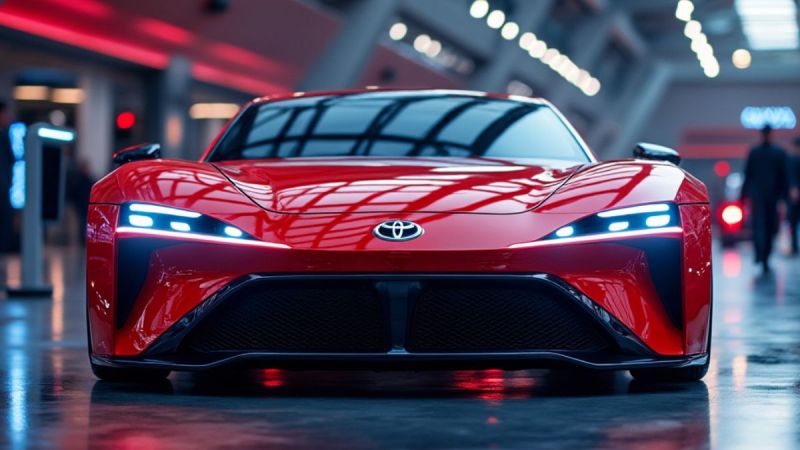





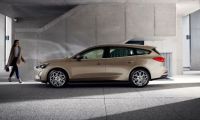
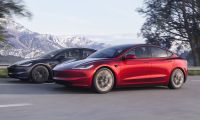
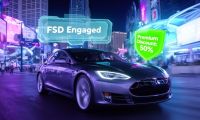
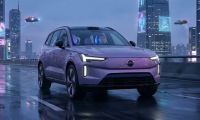
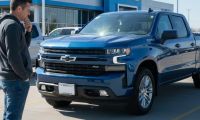
Comments
The Kodak analogy is not as…
Permalink
The Kodak analogy is not as close as it might first seem. For one thing, Kodak was huge in the film business, not nearly as much in the camera business. Kodak cameras were cheap, semi-disposable products with a purpose of enabling the masses to burn as much film as possible.
Kodak had a plan to transition to digital photography gradually using "hybrid" APS film (that stored meta-data digitally) and their innovative PhotoCD format. However, APS suffered from delays reaching the market and didn't offer enough advantage over 35mm, while PhotoCD was great stuff but was too expensive. And then they got into digital photo-printing kiosks as well. Point being, it's not like Kodak had their collective head in the sand and weren't trying anything.
Also, Kodak at one point were selling more digital cameras than anybody else. However, they weren't dominant the way they had been with film. There were a lot more companies in the digital camera market, and Kodak was only a little ahead of number two Canon. That couldn't save Kodak when their film sales fell of a cliff.
It should be noted that for camera makers in general the transition from film to digital was party time! They did incredible business selling enormous numbers of digital replacements for perfectly good film cameras that still had a lot of service life remaining. Because digital technology advanced so fast, they could come back in a couple of years and sell you a second digital camera to replace your now-obsolescent first one, and in a couple more years they could sell you a third. In many cases they could sell you a whole new collection of lenses too. The profits were outstanding while it lasted—until the technology matured and the masses started switching to phone cameras. The hangover from that party has been brutal.
Regarding Toyota, I still…
Permalink
Regarding Toyota, I still see some comments about how Toyota are raking in huge profits (true) and are just waiting until the time is right with EVs. They're letting others develop the technology, develop the market, and then at some point—maybe when solid state wonder batteries begin streaming out of factories—they'll flip a switch, and fantastic EVs will begin streaming out of Toyota factories, and they'll show all these upstart companies (Tesla, BYD, Xiaomi, etc.) how to really make cars. Personally, I don't think it works that way. I think there's a steep learning curve, and that car companies learn by doing, and Toyota ain't doing nearly enough. But we'll see.
Gas vehicle manufacturing…
Permalink
Gas vehicle manufacturing will be big business for "decades to come"?
I don't think so. Less developed areas buy many used cars but few new cars, and the used car market is about to BOOM as more developed countries move to electric.
Toyota has a decade to figure this out. Since they are not seriously trying, I don't expect them to survive for two decades. I hope I'm wrong - my wife loved Toyota vehicles before getting a Tesla - but I fear I'm not.
EVs are for losers. Not that…
Permalink
EVs are for losers. Not that Trump is president hopefully all that EV crap will be federally illegal and we can see them disappear.
Toyota was smart, EVs are garbage and the sooner people see they are a waste of time and cannot compare to fuel the better life will get.
Hopefully Trump will send people who buy EVs to jail or deport then to a Loser country do they can go be with their kind.
America ain't for EVs, it's for GAS and ROARING ENGINES. I almost got killed by one of those stupid soundless craps years ago, and now I make sure they don't harm anyone and you're a Loser I can tell. Probably for 30 EVs so you can get back and forth every week, you need about 30 with that garbage charging and battery and they all look like ugly garbage.
I used to have a friend in…
Permalink
I used to have a friend in my youth. When he would want a picture of himself he would say " Can you Kodak me?" in Tagalog/ Pilipino, today the youth would say," Can you Video me?".
Toyota today faces an existential threat from the likes of Tesla who they invested $500,000,000 way back then when Tesla was a startup, and the Big Elephant in the room, BYD, who I fully expect to replace Toyotas place in market share by year 2030, that is a scant 5 years away from today, then there is Geely and a host of Chinese brands.
Toyota already has the…
Permalink
Toyota already has the technology to move forward. They are probably the most advanced auto company in the world. The fact that the United States prematurely and irresponsibly threw money away to appease their doner base doesn't make it the right time. The infrastructure simply isn't there and the American people have spoken to that in the latest election. Go find out how much an electric car would be without government subsidies and the auto manufacturers losing billions of dollars and when you do tell me weather your average US consumer will be buying them . I think the average consumer would rather see us use our national resources to shore up social security and Medicare than pay for a charging network for people who don't even buy their own cars . Hybrid is advanced enough while our country has so many more important needs. I think if we can stand as a country we can bypass China's ultimate dominance in this field instead of trying to compete with them,and than at any time pick up the ball and run with it!